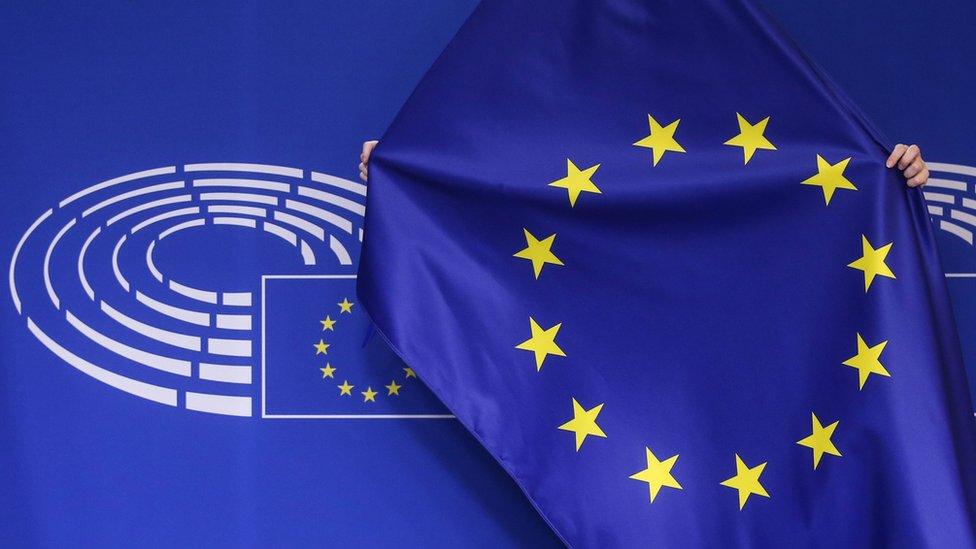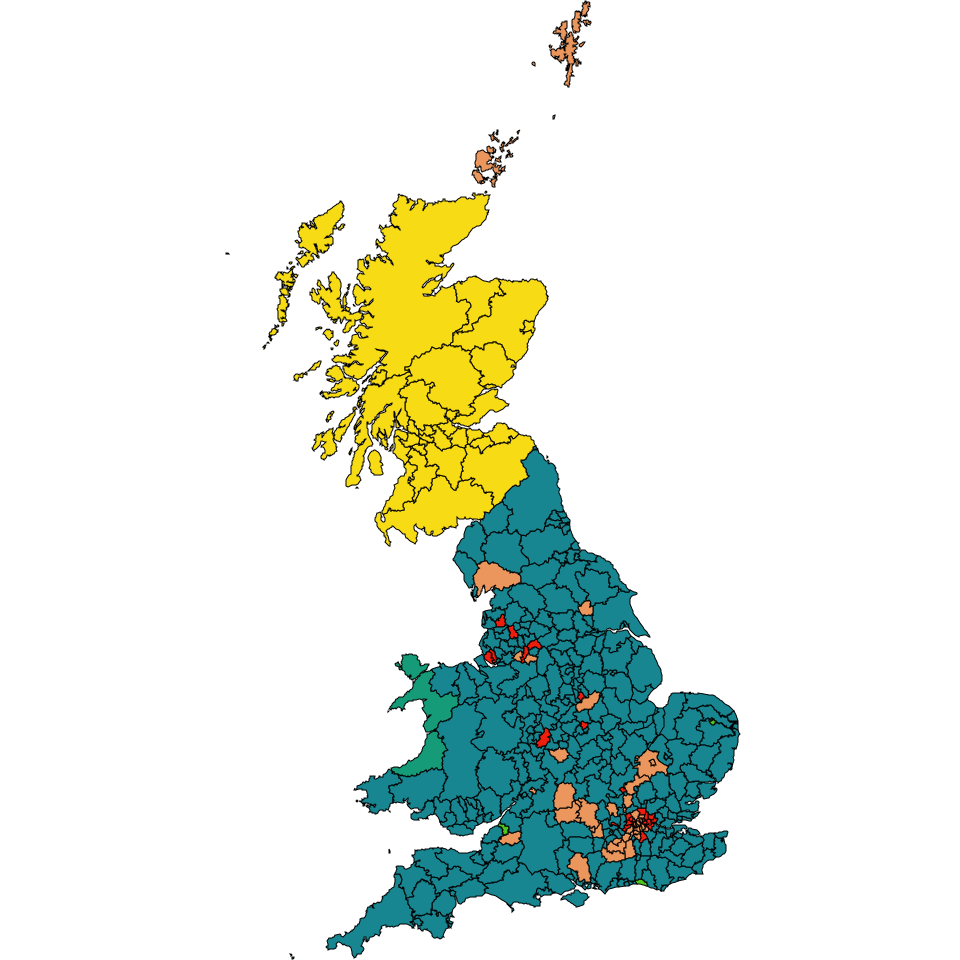European elections 2019: Brexit Party dominates as Tories and Labour suffer
- Published
The winners and losers of European election night
The Brexit Party was the clear winner in the UK's European elections, while the pro-EU Lib Dems came second.
The Conservatives and Labour suffered heavy losses, with the former getting less than 10% of the vote.
Brexit Party leader Nigel Farage said he was ready to "take on" the main parties in a general election.
Mr Farage's party won 29 seats, the Lib Dems 16, Labour 10, the Greens seven, the Tories four, the SNP three, and Plaid Cymru and the DUP one each.
The elections came after Prime Minister Theresa May tried three times to secure MPs' backing for her Brexit plan and announced her resignation after her fourth attempt prompted a backlash.
Mr Farage told the BBC: "With a big, simple message - which is we've been badly let down by two parties who have broken their promises - we have topped the poll in a fairly dramatic style.
"The two-party system now serves nothing but itself. I think they are an obstruction to the modernising of politics... and we are going to take them on."

The main points at a glance
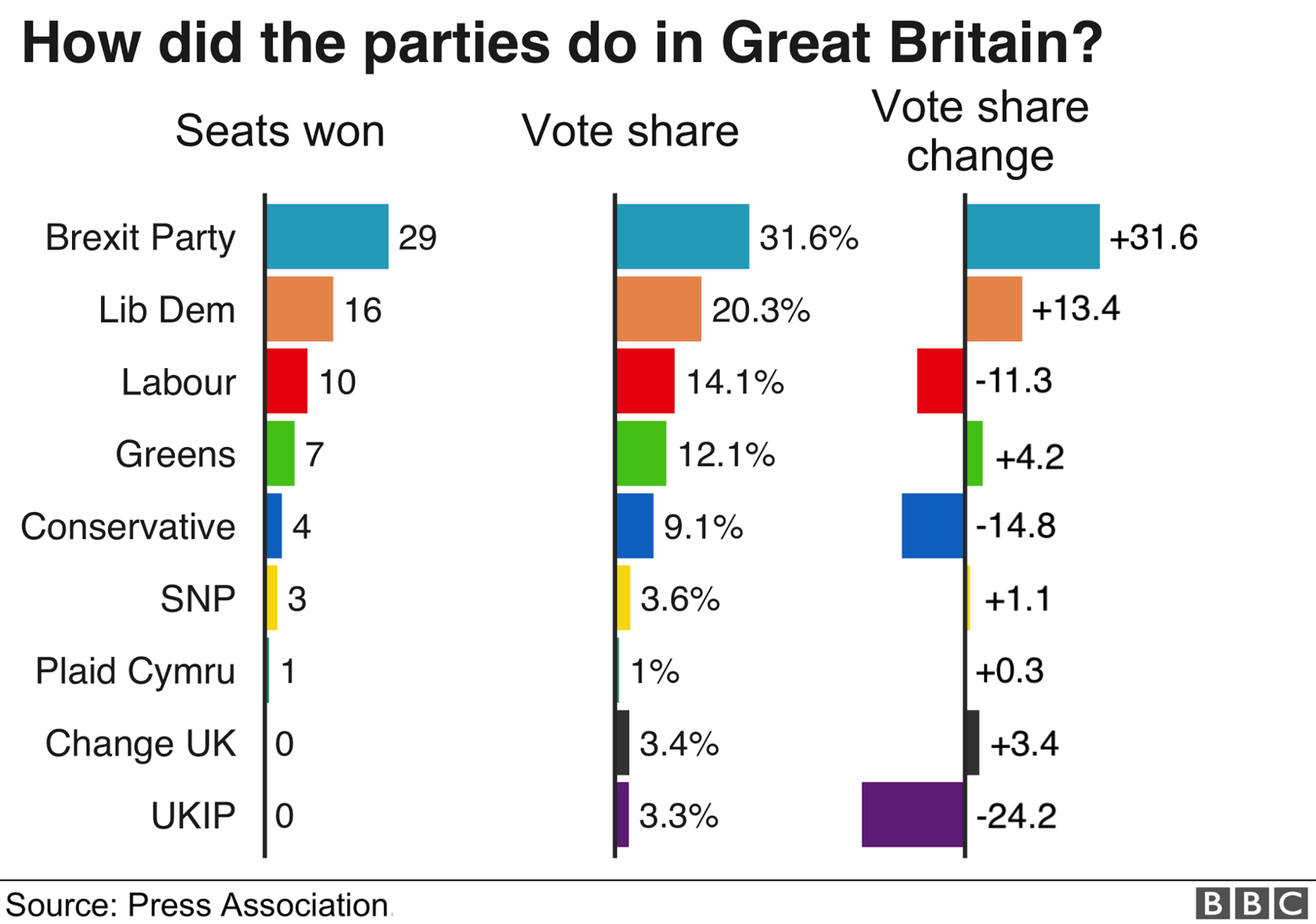
The UK elected 73 MEPs
Turnout was just below 37% - the second highest in any European election in the UK
The Brexit Party received the highest share of the vote in nine of the 12 regions - with 32% overall
The Conservative Party was in fifth place
The Lib Dems took second place with 20% of the vote
Labour Party fell to third place overall, with less than 15% of the vote
The Green Party also made gains, seeing its best performance since 1989
Newly-formed Change UK did not win any seats, while UKIP haemorrhaged support to The Brexit Party

Liberal Democrat leader Sir Vince Cable said he was "pleasantly surprised" by his party's "very good result".
He added that there was "a majority of people in the country who don't want to leave the European Union now".
Polling expert Sir John Curtice said the results showed how polarised the country had become over Brexit.


Were these results an overwhelming cry for us to leave the EU whatever the cost? Or a sign, with some slightly convoluted arithmetic, that the country now wants another referendum to stop Brexit all together?
Guess what, the situation is not quite so black and white, whatever you will hear in the coming hours about the meaning of these numbers.
The Brexit Party's success was significant and Nigel Farage's new group is the biggest single winner.
But the Lib Dems, Greens, Plaid and SNP - all parties advocating the opposite - were victors too.

Mrs May, who is due to step down as Conservative leader on 7 June, tweeted her response to her party's performance.
Allow X content?
This article contains content provided by X. We ask for your permission before anything is loaded, as they may be using cookies and other technologies. You may want to read X’s cookie policy, external and privacy policy, external before accepting. To view this content choose ‘accept and continue’.

Across Europe, the big centre-right and centre-left blocs lost ground, amid a surge in support for liberals, Greens and nationalists.
The UK had been due to leave the EU on 29 March, but after that deadline was put back to 31 October, participation in the election became mandatory.
Region by region
The Brexit Party topped the polls in every region of England apart from London. It also dominated in Wales, with Plaid Cymru second.
It has now become the joint largest national party in the European Parliament, alongside Germany's CDU/CSU party.

In Scotland, the pro-Remain SNP won the biggest share of the vote, with just under 38%, giving it three MEPs.
The Brexit Party came in second place with a significantly lower percentage - 14.8% - followed by the Lib Dems with 13.9% and the Tories with 11.6% - meaning each party has one seat.
But Labour only received 9.3% of the vote - a loss in vote share of 16.6% - leaving it with no MEPs in Scotland for the first time.
In Northern Ireland, the DUP (which supports leaving the EU), Sinn Fein (Remain), and the Alliance Party (Remain) all won a seat each.
The Tory story
Brexiteer and Conservative MEP for the South East Daniel Hannan - one of only three Tory MEPs elected - said it was his party's "worst ever result".
"We voted to leave (the EU) and we haven't left - it's that simple," he told the BBC.
Tory leadership hopeful and former Foreign Secretary Boris Johnson said the public had delivered "a crushing rebuke" to both major parties for failing to deliver Brexit.
Labour's losses
Labour leader Jeremy Corbyn is facing increasing pressure from senior members of his party to back another referendum on Brexit, with shadow chancellor John McDonnell saying it is the only way through the deadlock.
"If there can be a deal, great, but it needs to go back to the people," Mr McDonnell said.
"If it's a no-deal, we've got to block it and the one way of doing that is going back to the people and arguing the case against it because it could be catastrophic for our economy."
McDonnell: Brexit 'needs to go back to the people'
But the leader of the Unite Union, Len McCluskey, said Labour's attempt to "unite the nation" over Brexit was "an honourable objective that must not be abandoned".
And Mr Corbyn wrote to his MPs that it was "clear that the deadlock in Parliament can now only be broken by the issue going back to the people through a general election or a public vote. We are ready to support a public vote on any deal."
Other parties
Green Party co-leader Sian Berry said the case for a further referendum was stronger than ever, adding that it was "the way to draw a line under the Brexit chaos".
Change UK, which also opposes Brexit, failed to win any seats in the election, but leader Heidi Allen told the BBC her party - newly formed from former Labour and Tory MPs - was "down, but we are not out".
Meanwhile, UKIP, which Mr Farage used to lead, lost all its MEPs, and saw a fall in its vote share of more than 20 points.
The party's former deputy leader, Mike Hookem - who lost his seat in Yorkshire and the Humber - blamed UKIP leader Gerard Batten for the result.
He highlighted Mr Batten's association with former EDL leader Tommy Robinson - real name Stephen Yaxley-Lennon - who also failed to win a seat in the North West Region, where he ran as an independent.
Correction 20 August 2019: This article has been amended to remove a chart that attempted to show the performance of pro- and anti-Brexit parties, after a ruling from the BBC's Executive Complaints Unit.
- Published8 May 2019
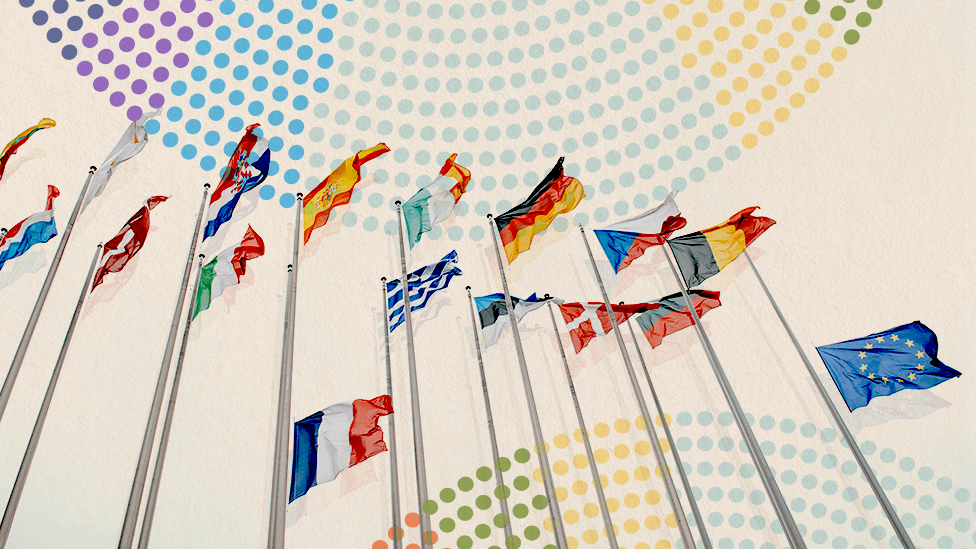
- Published24 May 2019
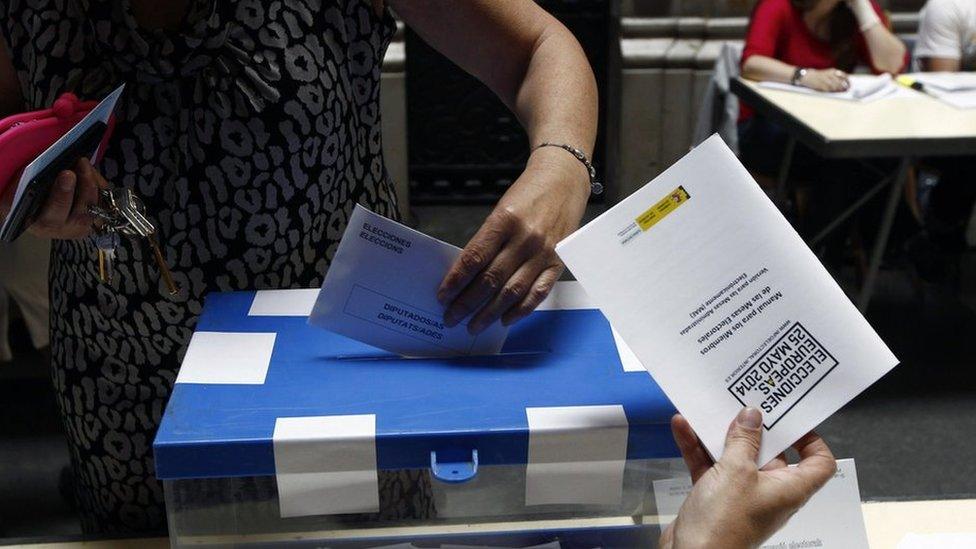
- Published24 May 2019
